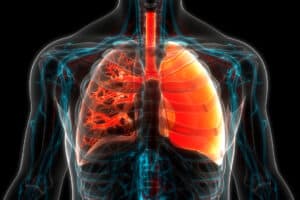The system functions by predicting future daily confirmed cases, based on historical data from the country's past infection history.

An Artificial Intelligence (AI) powered early detection system has predicted the country is at a low risk of a third wave of Covid-19 infections, at least for now.
The AI system was designed by the University of the Witwatersrand, in partnership with iThemba LABS, the Gauteng government and York University in Canada.
Following a busy Easter holiday period, the algorithm shows a low risk of third wave infections across all provinces.
The system functions by predicting future daily confirmed cases, based on historical data from the country’s past infection history.
Professor Bruce Mellado, director of the Institute for Collider Particle Physics at Wits University, said: “The current data shows us the risk for a third infection wave of Covid-19 is small across most of the provinces in South Africa, but we still remain highly vulnerable.”
“To make predictions, we look at the rate of infections, mortality rates and the stringency of non-pharmaceutical interventions, like travel bans.”
He said the algorithm then compares all the current data with previous waves of the disease, and it makes a prediction on whether there would be a new wave or not.
While algorithm-based predictions can never be 100% accurate, Mellado is confident the model presents a very good forecast over a two-week period.
While the AI can make predictions over longer-term periods, they become less accurate, he added.
Data
“The wave might happen on week three, but we will be looking at the data and we’ll be able to make that prediction next week. You always find out because the data is telling you a lot.
“The problem we have with the pandemic is that no one in the world can predict waves in the long term. If someone tells you there is a wave coming next month, that person is thumbsucking.
“We cannot predict social behaviour. But we can look at the data in the shorter term and see that something has changed. We can then give an alert weeks before it happens.”
Dr James Orbinski, director of the York University Dahdaleh Institute for Global Health Research, said: “These parameters are consistent with clinical public health measures that can contain, control and mitigate against the Covid-19 pandemic,” said
Mellado added that, while the risk is low now, it is still crucial for people to adhere to Covid-19 regulations, like mask-wearing and social distancing.






